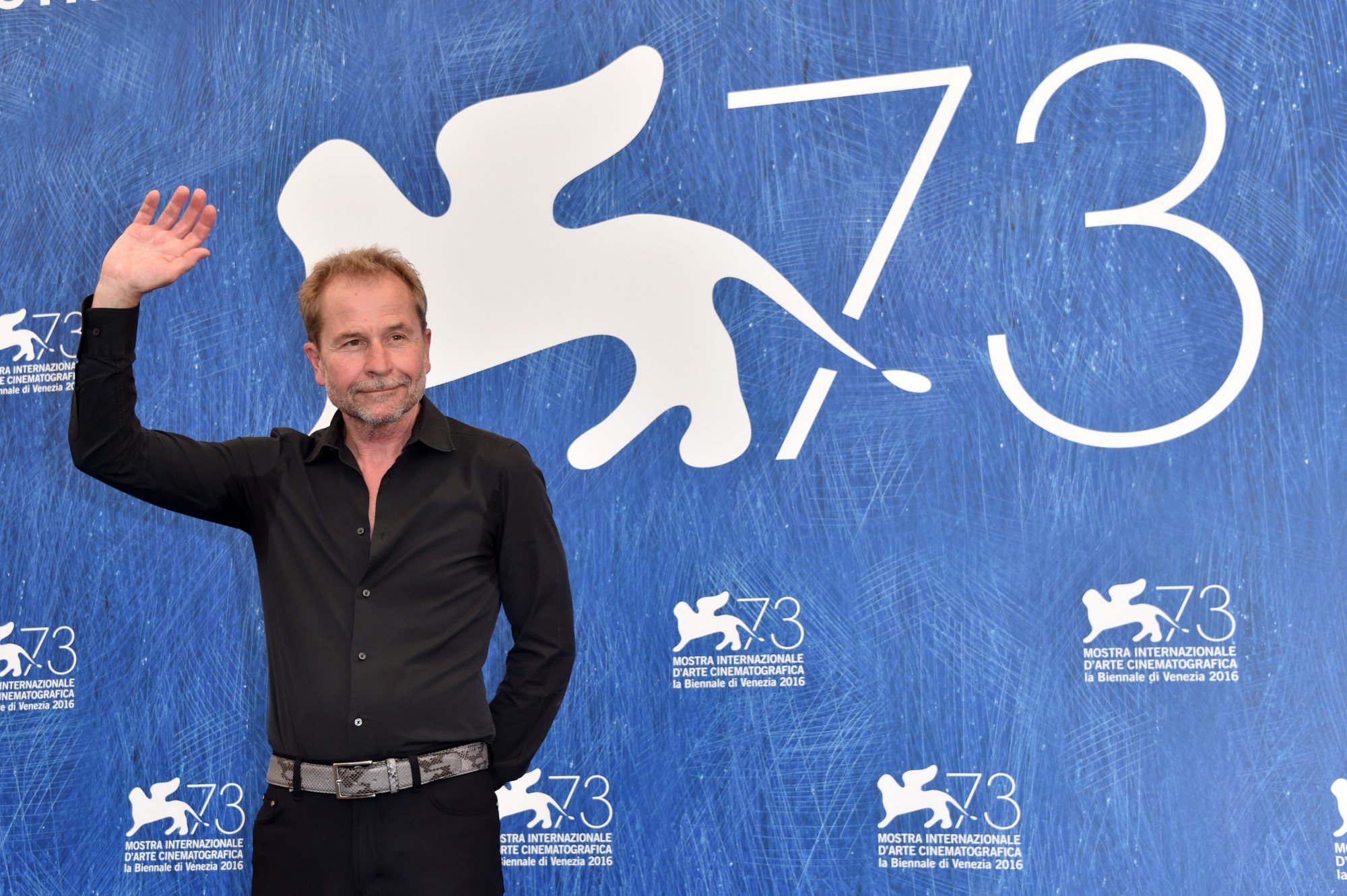
- Festivals
Ulrich Seidl , Austria’s Enfant Terrible, Is Back on the Lido
Ulrich Seidl has already won three Venice Festival awards, two for Paradise: Faith in 2012 and the Grand Special Jury Prize for his 2001 feature Hundstage (Dog Days).
He is back now with Safari, a film that is shown in the festival’s documentary section. The title reveals what this doc is about: a bunch of Austrian and German hobby hunters who like to kill wild animals in Africa, pose proudly for a photo and have the beasts taxidermied for wall mounts and carpets with heads in their conservative country homes. Just like in his other films, Seidl exposes the dark and the ridiculous side of human nature and puts the hunters on display in front of his camera lens like they do with their kills. The human perpetrators become his prey but the irony seems lost on the participants. One ‘protagonist’ of his doc even accompanied the director to Venice and took his bow on the red carpet. This has happened before, with Hundstage when Seidl brought the whole cast along, including a legendary Viennese pimp who has to sing the Austrian anthem in the movie while being held in chains by a dominatrix who puts a candle in his behind. But at least Viktor (his real name) understood that he and his acting colleagues were not heroes. And even though Hundstage and Paradise: Faith were features, in typical Seidl fashion most of the actors were amateurs to give the films a documentary feel.
Safari, on the other hand, is not acted at all. When an old couple compares kill fees for impalas with those of zebras they are as serious as the spoiled daughter who insists that she could not kill an elephant – because ‘it is too big’ – not because it occurs to her even for a second that she is talking about an endangered species. And when the wealthy wife shoots a wilderbeast on the first try, she gets kisses from her proud husband while arranging the dead animal for the perfect photo. The husband seems so turned on by wifey’s kill that one almost hopes that this was not a documentary, and the director could have staged the couple in a sex scene.
Who familiar with Seidl’s films (and all Austrians and most Germans are) would willingly put themselves in front of his camera, one wonders? ‘That’s not my problem and frankly, I couldn’t care less“, says the director: ‘And it is not that I ever mislead anyone. I told these hunters exactly what I would film and that I was going to show what they do and how they do it. But believe it or not, they are convinced that what they are doing is perfectly alright.“ Just like some of us will never understand Trump’s two lion-shooting sons or the dentist from Minnesota who ended the life of Cecil, Zimbabwe’s treasured royal animal.
Seidl’s intention, however, was not to judge but simply bring reality in front of the camera and let the audience decide how to view it. But even if he denies this, the director does take a perverse pleasure in shocking his audiences. (In Paradise: Faith) a nun masturbates with a crucifix). Just as much as I get a perverse pleasure out of watching audiences watch Seidl’s movies. As an expatriate my distance to some of his typically Austrian characters helps me, I believe, to enjoy them more than some of my countrymen and women who feel embarrassed by his depictions. When he premiered Hundstage in Venice 15 years ago, a colleague decided to interview journalists as they were leaving the screening. Most were dumbstruck and speechless. A critic from the Netherlands said with a mixture of shock and awe: ‘I have never been to Austria and always wanted to go, but now I’m not so sure anymore…’ The French on the other hand consider Ulrich Seidl a genius. Don’t forget, this is the nation that also adores Woody Allen. And far from comparing the two or their works, both have been celebrated in France. So when the gallic critics call every single one of Seidl’s films a masterpiece, take it with a grain of salt.
Over the weekend Ulrich Seidl celebrated his film along with fellow Austrian and German filmmakers, his wife, co-writer and producer Veronika Franz (a director in her own right – her horror thriller Goodnight Mommy was Austria’s Oscar entry last year), Austrian media at the Trattoria Antico Besseta in a tourist-free part of Venice.
Safari is being shown out of competition as part of a selection of filmmakers that had previously been part of the festival.

